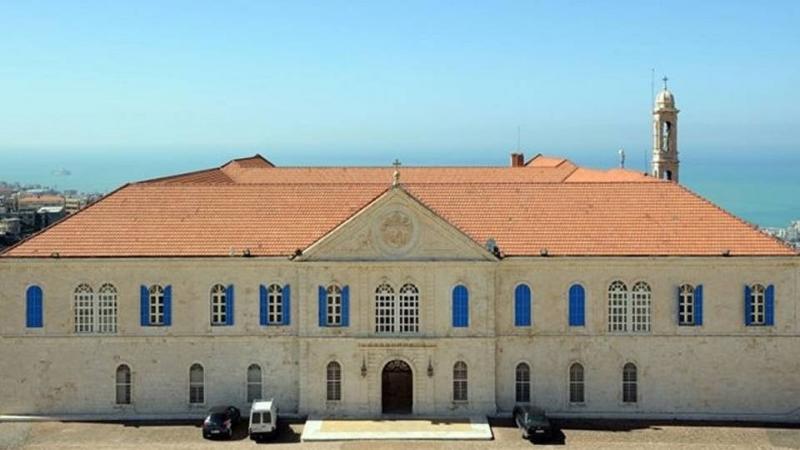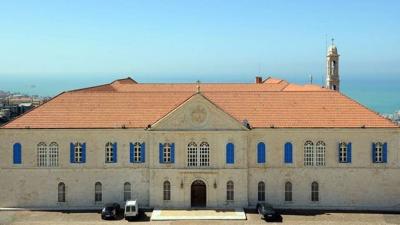Behind the scenes, the file concerning the presidency is being quietly handled, away from political posturing and the “theatrics” of the “Change” deputies under the parliament dome. In consultation with the Maronite Patriarchate, political entities are engaging in extensive dialogues about the presidential elections. Preparations are underway for a list of potential candidates that would not provoke any local factions. Three days before the end of President Michel Aoun's term, those looking to form a government faced significant disappointment. The optimism that characterized hopes last week could not be sustained, colliding with each party’s insistence on their demands. Nonetheless, there are still corridors where some are betting on a last-minute resolution. However, it has become clear that forming a government is no longer an international demand. The two principal countries, France and the United States, maintain that forming a new government or modifying the existing one with new names would delay the election of a new president and prolong the presidential void. The priority is now the election of a new president.
Internally, the “Free Patriotic Movement” has become less enthusiastic about a new government compared to “Hezbollah.” The yield of any government may not match the outcome of the settlement related to electing the president. Any governmental change is likely to involve the replacement of no more than three ministers, whereas the movement currently has six ministers. The presidency has become the priority. Some names are currently being circulated while others have been eliminated. Regarding Sleiman Frangieh, “Hezbollah” remains cautious about officially endorsing his candidacy. Reports suggest that the head of the “Maronite Movement” has requested “Hezbollah” to wait another two months or more, as regional and international developments could enhance his candidacy. Frangieh is moving ahead with his presidential ambitions and does not perceive American or French reservations regarding his nomination; however, he faces two significant obstacles: Saudi Arabia's stance, which he links to changes in external factors, and the refusal of the head of the “Movement,” Gibran Basil, to endorse his candidacy—an issue for which “Hezbollah” has not found a solution.
This is not the first time Basil has explicitly informed “Hezbollah” that there is no possibility of electing Frangieh unless by some miracle. The same message has been conveyed to Patriarch Rai. The idea of dialogue regarding the profile of the presidential candidate is in the works in Bkirki, which is handling it discreetly. From the movement’s perspective, there are many eligible names for the presidency and they are not limited to one or two individuals, namely Sleiman Frangieh and Army Commander Joseph Aoun, who are now considered outside the presidential equation in the movement's view. The fortunes of Frangieh depend on Basil’s approval, which has not yet been secured, while it is nearly impossible for him to reach an agreement with the “Lebanese Forces.” As for Aoun, more internal parties are now willing to oppose the repeated experience of military rule and the constitutional amendments it would require.
“Hezbollah” is waiting for the end of Michel Aoun’s term to seriously begin discussions on the presidential file. They have not lost hope in succeeding with their attempts with Basil. Without him, securing a voting majority is difficult, and with him and without the Socialist Party deputies, achieving the legal quorum for the election session is challenging. Finding a compromise among deputies is necessary, particularly with Sunni deputies. “Hezbollah” may have no choice but to reach an agreement with Saudi Arabia regarding the third presidency to facilitate the presidential election. Their red line revolves around the option of former President Fouad Siniora in particular, while the remaining names are open to discussion. The Kingdom facilitates the election of the president through Sunni deputies, making it easier for “Hezbollah” to secure the election of a Prime Minister.
Should such a scenario fail, the election of a president is unlikely in a parliamentary assembly incapable of agreeing on a candidate due to divergent ideas and proposals, even among those who are supposed to be in the same group, such as the “Change” representatives. Within political salons and among deputies, some speak of the impossibility of such an assembly continuing until the end of its term. The formation of the current parliament encourages the notion of a presidential void. Prior to Michel Aoun's election, the presidential void lasted more than two and a half years; how much more so in the current fragmented assembly? If the presidential void extends until the current parliamentary term ends, those who waited two and a half years can certainly wait longer!
Hours are counting down toward the presidential void. The end of Aoun's term marks the beginning of serious international engagement with Lebanon. Decision-making countries concerned about the elections have begun to seriously consider a settlement to fill the void in Baabda. The impending president will only be elected based on a settlement and will be a non-provocative candidate, capable of managing the crisis. There are many options, but few qualified candidates, one of whom represents a point of convergence among all parties. Many countries are ready to engage in a settlement, both Arab and international, especially following the success of the demarcation agreement.




